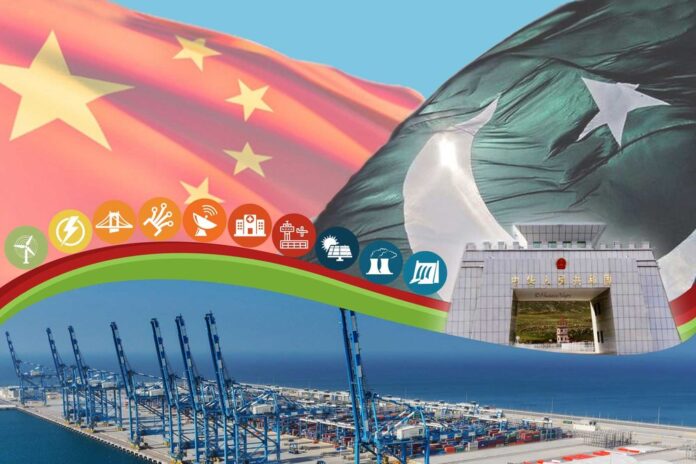Pakistan and China have encountered challenges in expanding their cooperation within the China-Pakistan Economic Corridor (CPEC), particularly in the areas of energy, water management, and climate change, as highlighted by the 11th Joint Cooperation Committee (JCC) meeting.
The 11th JCC meeting held virtually in October 2022 but with minutes signed only on July 31, 2023, revealed significant differences in opinion and a year-long delay in reaching a consensus between the two nations.
As per a report by the Express Tribune, China showed reluctance to endorse numerous proposals put forth by Pakistan in areas such as energy, water management, climate change, and tourism in regions including Giglit-Baltistan, Khyber-Pakhtunkhwa, Azad Jammu and Kashmir (AJK), and coastal areas. This resulted in disparities between the initial draft presented to Beijing and the final signed minutes.
China notably excluded cross-border tourism cooperation in GB, KP, and AJK and collaboration to promote coastal tourism from the finalized minutes. It rejected Pakistan’s suggestion to incorporate Water Resources Management, Climate Change, and Urban Infrastructure Development within the CPEC framework and dismissed the proposal for a joint working group on water resources management and climate change.
The Ministry of Planning emphasized that it is customary for both countries to sign meeting minutes only after thorough consultation and consensus-building to ensure accurate representation of agreements and understandings. In this case, the 11th JCC meeting minutes were signed in July 2023 after a meticulous consultation process.
Additionally, China omitted discussions about the financial challenges faced by power companies from the final minutes, including details regarding the financial closure of projects such as the Azad Pattan hydropower project, Kohala power plant, and Thar Block 1 Shanghai Electric Co power plant.
A significant concession was made by Pakistan concerning the establishment of the 300 megawatts power plant in Gwadar. Pakistan had initially considered shelving the project or relocating it to Thar to utilize local coal. However, China did not support Pakistan’s proposal, leading to an agreement to proceed with the Gwadar Power Plant according to the existing plan.
Pakistan committed to follow the consensus reached by both sides and instructed Pakistani power purchase companies to halt deductions of the capacity power rate and refund any previously deducted amounts. To ensure the smooth operation of CPEC power projects, Pakistan promised timely exchange of US dollars for CPEC power projects to purchase necessary fuels.
China also declined to include a 500kv transmission line from Hub to Gwadar in the CPEC framework and rejected proposals related to the development of Thar coal blocks, conversion of coal into other products, and the South-North gas pipeline project.
Pakistan’s proposals for Chinese participation in a strategic underground gas storage project, a national seismic study for sedimentary areas, and joint exploration, development, and marketing of metallic minerals were also not mentioned in the final minutes.
However, the Ministry of Planning said that the signing of the 11th JCC meeting minutes underscores the strong relationship between Pakistan and China and reflects their commitment to working together to achieve common goals.





Hello your post is very helpful, thanks for sharing. When you go about Find information and tips on